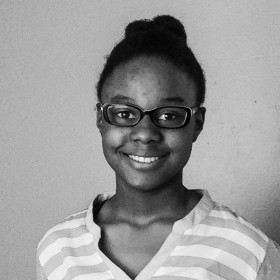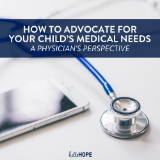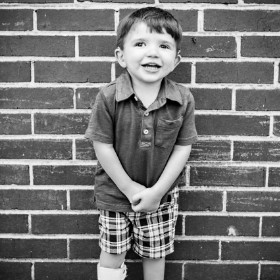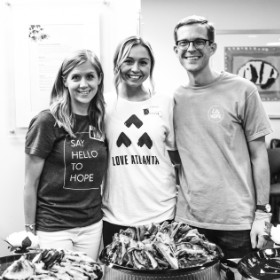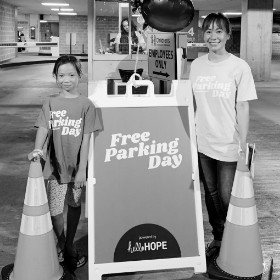Trisomy 16 and VSD: Adelaide’s Story of Hope
I have had the gift of knowing Ben and Rebecca for years. I watched them date and get married. I watched them walk through this valley with great grace. The thing that encouraged me the most was watching Ben and Rebecca walk hand in hand with their eyes on their Savior. Every time we saw them together, it was apparent that they were a team. The Shivers’ God-given faith has encouraged my heart and the hearts of so many others, and I’m grateful they have allowed me to share their story.
Our friends Ben and Rebecca came over for dinner one night in 2019. With tempered joy, Rebecca shared that she was expecting a baby with a significant diagnosis.
Imagine being told that your pre-born baby would not make it. Imagine being told that your child’s diagnosis could not be supported outside the womb. Imagine being advised to terminate your pregnancy and to seek out grief counseling. Ben and Rebecca Shivers heard these things from their doctors during the second trimester of their first pregnancy.
Rebecca remembers the phone call: "You need to go to the high risk doctor now." Rebecca responded, "I have an appointment in two weeks. I don't necessarily need to go now, right?" The doctor answered, "No, you need to go now."
Rebecca and Ben went to the doctor immediately. They noted that the doctor seemed distressed the entire time they were there, making them feel uneasy. The doctor noticed a severe growth restriction, as well as a VSD (ventricular septal defect — a hole between the two pumping chambers of the heart). She sent Rebecca to have further testing, which revealed that trisomy 16 was in her blood.
Miscarriage is common during the first trimester with trisomy 16, but Rebecca was already 19 weeks. Rebecca remarks that the doctor was baffled that this baby was still alive. That same day they met with a genetic counselor who shared that of the few documented cases of babies born with this chromosomal abnormality, the children typically had physical abnormalities but nothing tremendously life-threatening.
“So we can manage this. We can do therapy. We can do surgeries. We're going to have this baby,” Rebecca told herself.
Walking through a low valley
Rebecca and Ben were feeling hopeful until their next appointment when the doctor reported that nearly all of her amniotic fluid was gone, and the ultrasound looked as if her water had already broken.
“That was the lowest of the lows,” Ben shared. “It was the lowest point because that is when the doctor told us it was a matter of time before we lost our baby, and she started offering options to end the pregnancy. That, of course, was not an option for us,” said Rebecca.
After hearing this upsetting news, Ben and Rebecca did not know what to think. The loss of amniotic fluid was discouraging news, and the future felt unclear. The baby would have to be at least 500 grams in order to intubate her, but she was only 200 grams. She was going to lose the ability to practice swallowing and also the ability to move around inside the womb. Rebecca added, “The doctors said even if she continued to grow, she would start to develop contractures. Her joints would become fused because she couldn't move.”
At this point, the Shivers made the decision to put nursery preparations on hold. “We just put all that on pause because we couldn't handle the thought of getting everything set up and then not using it,” Ben said.
Reaching out for prayer
In the midst of their grief, Ben and Rebecca reached out to their pastor to ask for prayer. Ben said, “Of course we were praying the whole time, but I think that was the day that we realized that it was not manageable to wait it out and hope for the best. We needed God's intervention if our baby was going to be born at all.”
Soon after their request, their pastors, elders, and home group began praying for them at church (Christ Church Presbyterian in Atlanta) and in their home. About this time, Ben and Rebecca began blogging about their experience on CaringBridge. Their story spread like wildfire and people all over the world began to pray.
Ben and Rebecca felt that this time of prayer was significant because the leaders of the church followed the Bible’s instructions to lay this case before the Lord and humbly ask for his intervention. Ben added, “I think that what was really important to us the whole time was to not treat God as a vending machine. We have this need, so let's see what prayers we can put in the slot and out comes a miracle, hopefully. That's not how it works. He could have said no to our request without being less worthy in our eyes.”
Rebecca admitted that she was already grieving the loss of her baby. But Ben said, “No, we're not going to do that. She's with us today, and we're going to celebrate her today. We don't know if she'll be here tomorrow, but we're going to celebrate the fact that we have her today because she is alive and we're going to not give up hope that God can change it because she's not left us yet.” Rebecca joyfully admitted that her husband’s perspective was really helpful for her during those grief-filled moments.
God answers with a miracle
The Shivers went to their next OB appointment not knowing what to expect. Rebecca had not detected any movement recently and was fully prepared to learn that day that her baby had died. During the ultrasound, the doctor found the baby’s heartbeat, and the Shivers were relieved. A few days later, they went to their perinatologist to check on the status of the amniotic fluid, but the doctor did not comment on the low amniotic fluid. After inquiring about it, the doctor said that the amniotic fluid looked good. It had returned to a sufficient level! What a miracle!
Week after week, Ben and Rebecca went for ultrasounds to measure the growth of the baby. Finally, baby Adelaide reached viability. Everything shifted at this point. No longer were doctors continually directing the Shivers to begin grief counseling. No longer were they encouraging termination of the pregnancy.
“We were so excited to meet with the neonatologist. Probably most people aren't happy to meet with the neonatologist,” said Ben. “We were like, ‘Tell us about the NICU.’ ‘Can you take us on a tour? We want to see the beds,’” Rebecca added with a laugh.
Days and weeks passed, blowing away Ben, Rebecca, and doctor’s expectations. Each week, doctors told the Shivers to brace for an emergency C-section. Week after week, the pregnancy continued. When Rebecca reached 30 weeks of gestation, the doctors set an induction date of 37 weeks. In the Lord’s kindness, Rebecca went into labor at 36 weeks and was able to deliver vaginally as she had prayed for. Baby Adelaide was two pounds and ten ounces at birth.
Trisomy 16 likely would cause physical abnormalities in Adelaide's body—facial deformities, cleft palate and lip. Rebecca remembers giving birth and scanning her baby. Adelaide was perfectly formed, no external physical abnormalities at all!
The NICU team whisked Adelaide away to investigate how trisomy 16 affected her body internally and give her the care she needed. After an examination, doctor’s determined that she had a significant ventricular septal defect, which they knew in utero. Adelaide already had a cardiologist on her care team.
Adelaide’s development and birth despite a positive trisomy-16 test result is a rare thing. Ben noted that all of Adelaide’s specialists did not have experience with this diagnosis. Ben remarked, “She's probably the only trisomy 16 baby born alive in Georgia in recent memory that we'd be aware of.”
Doctors conducted genetic testing on Adelaide and the placenta after birth. Testing revealed that 100% of the cells in the placenta had trisomy 16. None of Adelaide’s cells had the chromosomal abnormality. Because of this, doctors were able to treat Adelaide as if she did not have trisomy 16.
The challenge of caring for a medically complex baby
Now that Adelaide was here, the Shivers were plunged into a new world of intense medical care. Thankfully, Rebecca is a medical professional, so she had some familiarity with terminology and knew how to talk to doctors. Ben shared that he admired how Rebecca was able to advocate for Adelaide in an amazing way. She was not afraid to ask questions, challenge, or push back when it came to her baby’s care.
Still, it was incredibly difficult to walk through NICU days not having full authority over Adelaide and her care. Going back and forth to the hospital was taxing. Asking a stranger permission to pick up your own child was stressful. With the exception of one day, Ben and Rebecca went to sit with Adelaide every day of her NICU stay of 55 days.
Adelaide developed feeding difficulties. Her heart was cycling too much blood to the lungs, which made it hard to breathe, which made it hard to swallow. The NICU team put Adelaide on a feeding tube to alleviate this stress on her body.
Adelaide finally got to go home with her feeding tube. She still maintained a busy schedule of doctor appointments. She took multiple medications a day, all given through her tube. Ben and Rebecca spent an hour every evening cleaning her feeding tube supplies and preparing medications for the following day.
Adelaide went through heart surgery to correct the VSD in March of 2020. The Shivers hoped that she would come off of the feeding tube within a few days, but weaning from the tube proved to be harder than expected. Rebecca researched various options and decided to do an intensive feeding therapy program in Virginia. It was 10 days long with multiple feeding sessions a day. In the end, Adelaide was able to begin eating normally and say goodbye to the feeding tube.
After weaning from the feeding tube, the Shivers noticed a huge change in Adelaide. Her development began to pick up – she was sitting up and moving around and looking more and more healthy.
God’s abundant mercy
Rebecca and Ben spoke at length about the abundance of God’s mercy towards them: “Not only is she alive, but she doesn't have many of the complications that we expected, and her heart is repaired, and she's developmentally on track. That's mind blowing considering all that she had against her.”
Ben remarked, “The truth is that even if she had not survived, we have hope. We don't stake our lives on having perfect families with happy children. But sometimes I think God's mercy breaks through into this world, and we were able to see that. I think we saw that prayer is such a huge part of that. That God, in his wisdom, chooses to respond to prayer, even though we don't know what we're talking about — and we're certainly undeserving. God is free to behave how he sees fit, and we hopefully will worship him no matter what, just because of his own intrinsic worth.”
As our conversation came to a close, I asked Ben and Rebecca to tell me how they would define hope. Ben said, “I think I would say that ultimately our hope is not in this world at all. It's in the new creation that God has promised those who believe in Christ. And that means that no matter what, even if Adelaide had died in the womb and all of our worst fears had been realized, that we didn't have to rely on having a good family here on earth as the ultimate hope.”
I love that the Lord delighted to answer prayer and allow Adelaide to be born into this world and to thrive after her heart surgery and feeding tube wean. Ben and Rebecca have since welcomed a little boy named Ivan into their family, and Adelaide celebrated her second birthday. This dear family is doing wonderfully, all by God’s abundant grace.

About the Author
Mary Brantley Meade lives in Atlanta, Georgia with her husband and three young children. Her background is early childhood education, and she most recently received a masters in counseling from Westminster Theological Seminary. When she’s not counseling or writing, you can find her enjoying the outdoors with her family.
Loading...



